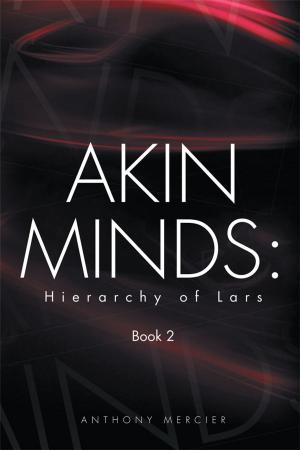| Author: | Larry L. Franklin | ISBN: | 9781483665511 |
| Publisher: | Xlibris US | Publication: | July 15, 2013 |
| Imprint: | Xlibris US | Language: | English |
| Author: | Larry L. Franklin |
| ISBN: | 9781483665511 |
| Publisher: | Xlibris US |
| Publication: | July 15, 2013 |
| Imprint: | Xlibris US |
| Language: | English |
Memory is our most treasured asset. Seldom has such a complex subject been presented in a compelling narrative, where the intellect, the curious, and the recipient of horrific memories can grasp its meaning. Mnemosyne: A Love Affair with Memory is such a story. The two main characters, Larry L. Franklin and Richard Semon, lived in different centuries on opposite sides of the world, with memory as the common obsession that ties the two stories together. Franklin was diagnosed with posttraumatic stress disorder brought on by physical and sexual childhood abuse. He had lived for decades without knowing the cause of his misery. If not for his mothers revelations, he might never have seen the memories that nearly cost him his sanity. Long-term therapy, self-exploration, and an able psychotherapist brought him back from the dark side. Richard Semon was a world-renowned nineteenth-century evolutionary biologist. His reputation crumbled when he fell in love with a fellow professors wife, who chose to leave her husband and children for a life with Richard. The university fired Richard, his peers turned away, and the one-time-professor turned private-thinker/philosopher dedicated the remainder of his life to the study of memory. Peer rejection and the later death of his wife drove Richard into a deep depression followed by suicide. This is a work of creative nonfiction written in the form of a hybrid memoir. The complexities of memory, together with the mysteries of a spiritual journey, yearned for an approach different from the strictly fact-based, nonmetaphorical strategies most common in nonfiction. Long before the written word, the ancient Greeks conveyed the complications of mortal life and left veiled advice for future generations through stories, myths, and legends. They brought human qualities and quests to life through the exploits of an assortment of gods, goddesses, and other mythological creatures. Even now, artists sometimes use Greek mythology to explain the seemingly unexplainable. I chose Mnemosyne, the goddess of memory, as a conduit for the deeper, more abstract aspects of my own and Richard Semons navigation of the spiritual world. Personifying memory as the Greeks did seemed appropriate to my quest, as it was to Richard Semons. Writers of memoir depend on their relationship to memory, are smitten with it, are obsessed by it, and chase it down the halls of recollection, always in pursuit of an entity that disappears around every next corner, much like an elusive lover who bids the beloved to come hither, but who then flees, disappearing and reappearing in a seemingly endless chase. When memory finally turns to face the one chasing her, the embrace can be both wonderful and terrible. This was so for Richard Semon, and it was so for me. Memory reaches back in time and challenges the accuracy of what one recalls in that embrace. I wrote what I remember; nothing more, nothing less.
Memory is our most treasured asset. Seldom has such a complex subject been presented in a compelling narrative, where the intellect, the curious, and the recipient of horrific memories can grasp its meaning. Mnemosyne: A Love Affair with Memory is such a story. The two main characters, Larry L. Franklin and Richard Semon, lived in different centuries on opposite sides of the world, with memory as the common obsession that ties the two stories together. Franklin was diagnosed with posttraumatic stress disorder brought on by physical and sexual childhood abuse. He had lived for decades without knowing the cause of his misery. If not for his mothers revelations, he might never have seen the memories that nearly cost him his sanity. Long-term therapy, self-exploration, and an able psychotherapist brought him back from the dark side. Richard Semon was a world-renowned nineteenth-century evolutionary biologist. His reputation crumbled when he fell in love with a fellow professors wife, who chose to leave her husband and children for a life with Richard. The university fired Richard, his peers turned away, and the one-time-professor turned private-thinker/philosopher dedicated the remainder of his life to the study of memory. Peer rejection and the later death of his wife drove Richard into a deep depression followed by suicide. This is a work of creative nonfiction written in the form of a hybrid memoir. The complexities of memory, together with the mysteries of a spiritual journey, yearned for an approach different from the strictly fact-based, nonmetaphorical strategies most common in nonfiction. Long before the written word, the ancient Greeks conveyed the complications of mortal life and left veiled advice for future generations through stories, myths, and legends. They brought human qualities and quests to life through the exploits of an assortment of gods, goddesses, and other mythological creatures. Even now, artists sometimes use Greek mythology to explain the seemingly unexplainable. I chose Mnemosyne, the goddess of memory, as a conduit for the deeper, more abstract aspects of my own and Richard Semons navigation of the spiritual world. Personifying memory as the Greeks did seemed appropriate to my quest, as it was to Richard Semons. Writers of memoir depend on their relationship to memory, are smitten with it, are obsessed by it, and chase it down the halls of recollection, always in pursuit of an entity that disappears around every next corner, much like an elusive lover who bids the beloved to come hither, but who then flees, disappearing and reappearing in a seemingly endless chase. When memory finally turns to face the one chasing her, the embrace can be both wonderful and terrible. This was so for Richard Semon, and it was so for me. Memory reaches back in time and challenges the accuracy of what one recalls in that embrace. I wrote what I remember; nothing more, nothing less.















